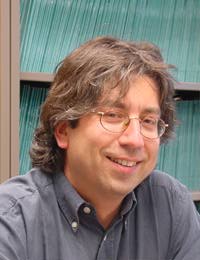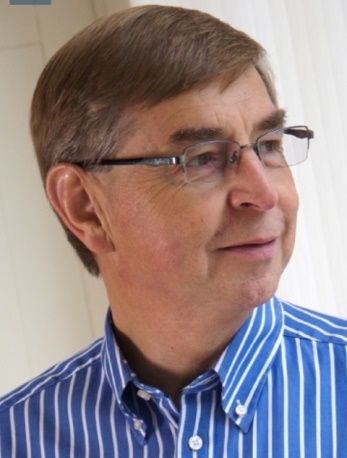Professor Jean-Marie Lehn (Nobel laureate), ISIS, Université de Strasbourg, France
Perspectives in Chemistry: Molecular – Supramolecular – Adaptive Chemistry (abstract)

Jean-Marie Lehn is Professor at the University of Strasbourg Institute for Advanced Study (USIAS), Emeritus Professor at the University of Strasbourg, and Honorary Professor at the Collège de France in Paris. In 1968, he achieved the synthesis of cage-like molecules (cryptands) containing a cavity (crypt) into which another entity, molecule or ion of specific nature, can be lodged, forming a cryptate. This work expanded into the investigation of the chemical basis of “molecular recognition” (the way in which a receptor molecule recognizes and selectively binds a substrate), which plays a fundamental role in biological processes. Over the years these studies led to the definition of a new field of chemistry, which he called “supramolecular chemistry”. It deals with the complex entities formed by the association of two or more chemical species held together by intermolecular forces.
In 1987, Jean Marie Lehn was awarded the Nobel Prize in Chemistry, together with Donald Cram and Charles J. Pedersen. Professor Lehn's work developed into the chemistry of self-organisation processes, based on the design of "programmed" chemical systems that undergo spontaneous assembly of suitable components into well-defined supramolecular species, directed by the supramolecular processing of molecular information. More recently, the implementation of dynamic features and of selection led to the development of “constitutional dynamic chemistry”, concerning entities able to undergo reorganization in response to external stimuli, thus pointing to the emergence of an “adaptive and evolutive chemistry”. Professor Lehn founded the Institute of Supramolecular Science and Engineering (ISIS) in Strasbourg in 2002. He has been involved in a large number of public and private boards and committees and also participated in several start-up companies. As president of the non-governmental International Organization for Chemical Sciences in Development (IOCD), he aims, together with a group of dedicated colleagues, to contribute to helping chemists in developing countries. He is the author of over 1000 scientific publications and two books, and member of many academies and institutions. He has received numerous international honors and awards, among them Officer of the French National Order of Merit (1993), Grand Officer of the French Legion of Honour (2014), Österreichisches Ehrenzeichen für Wissenschaft und Kunst, (Austrian Decoration for Science and Art -first class, 2001) and the Grosses Verdienstkreuz mit Stern der Bundesrepublik Deutschland (Knight Commander's Cross of the Order of Merit of the Federal Republic of Germany - 2009).
Professor Gaetano Assanto, University Roma Tre, Italy
“Spatial optical solitons in nematic liquid crystals: en-route to photonics” (Abstract)

G. Assanto completed in 1986 his PhD in Electrical and Computer Engineering, awarded by the Italian Ministry of Education after studies at the Universities of Palermo, Iowa and Arizona (USA). Till June 1988 he was Researcher at the Center for Electronic Research in Sicily, then Research Associate with the Optical Sciences Center at the University of Arizona, Senior Research Scientist with the Center for Research in Electro Optics and Lasers (University of Central Florida). In 1992 he became Associate Professor at the University “Roma Tre”, where established the Nonlinear Optics and OptoElectronics Lab (NooEL) and qualified in 1999 for a Full Professorship in Electronics.
Gaetano Assanto is an OSA and IEEE (Photonics) Fellow; a member of the Polish Photonics Society, the Association of Novel Optical Material and Applications, the Italian Society for Optics and Photonics, the Italian Association for Electric Technology, the Italian Institute for Nuclear Physics, the (Italian) Interuniversity Consortium for the Structure of Matter, the Italian Society for Liquid Crystals, the European Optical Society and the European Physical Society. He was 2009-2011 IEEE Distinguished Lecturer (Photonics Society), Zeiss Professor at Universitat Friedrich Schiller (Germany), Honorary Professor at the University of Wollongong (Australia), Visiting Professor at Université de Nice (Sophia Antipolis) and INLN-CNRS (France), Universidad Nacional Autonoma de Mexico, Technical University of Warsaw (Poland), Universidad de Vigo (Spain), King Abdullah University of Science and Technology (Saudi Arabia), Australian National University, Texas A&M University in Qatar, 2014-2018 Finland Distinguished Professor at Tampere University of Technology.
He serves or has served the editorial boards of OSA and IEEE, MDPI Materials, Laser Physics Review, Trends in Applied Sciences Research, Research Letters in Optics, Int. J. of Optics, J. Nonl. Opt. Phys. & Materials, Scientific Reports, IOP J. Optics.
Professor Peter Cochrane OBE, Sentient Systems University of Suffolk UK
Networks for An Infinite Service Future (Abstract)

As a seasoned professional with over 40 years of hands on management, technology and operational experience, Peter has been involved in established companies at an operational level, the creation and deployment of new technologies, products and management systems, plus the transformation of corporations, and the starting of many new businesses. This has involved board level responsibility in companies spanning £Bns to £Ms and an individual budget up to £100M with a management loading in excess of 1000 people.
Peter’s BT career saw a progression from a linesman to R&D engineer before becaming Head of Research and then CTO. With a 1000 strong team engaged in studies spanning optical fiber, fixed and mobile networks, Peter reported direct to the main board and was responsible for developments that would support future IP, eCommerce, eRetail, eLogistics and many other new businesses. Peter’s PhD was pivotal in BT deciding to go all-digital and all-optical in the 1970’s, and he played a key role in a downsizing of BT from 242,000 to 110,000 people in the early 1990s.
As a consultant and university professor, Peter has also been employed in the defence, logistics, travel, retail, energy, healthcare, transport, pharma, and consulting sectors as an advisor, board member, and manager with responsibilities for strategy and operations with budget responsibilities up to £1bn. As an investor and entrepreneur Peter has also engaged in the founding of new companies, investment and the management of growth leading to market success.
He was appointed as the UK’s first Prof for the Public Understanding of Science & Technology @ Bristol in 1998. A graduate of Nottingham Trent and Essex Universities, Peter has received notable recognition with the Queen’s Award for Innovation & Export in 1990 and Honorary Doctorates from Essex, Robert Gordon, Stafford, Nottingham Trent and Brunel Universities. He was awarded an OBE in 1999 for contributions to international communications.
Professor Isabelle Ledoux-Rak, École Normale Supérieure Paris-Saclay, FR
Nanoparticles for quadratic nonlinear optics : from dielectric to metallic structures
Isabelle Ledoux-Rak is currently appointed as Professor at École Normale Supérieure de Cachan and Head of the LPQM (Molecular and Quantum Photonics Laboratory) at École Normale Supérieure Paris-Saclay. Her current research interests include molecular and material engineering for photonic applications, investigation of gold nanoparticles for quadratic nonlinear optics and elaboration of waveguide polymer devices for sensor applications. She was recently awarded the 2015 Holweck medal from the Institute of Physics for her pioneering contributions to our understanding of the nonlinear optical properties of metal complexes, and demonstration of optical amplification phenomena at telecom wavelengths in polymer optical waveguides. She is the coordinator of the Erasmus Mundus Master course: “Molecular nano- and biophotonics for telecommunications and biotechnologies”, since September 2006.
